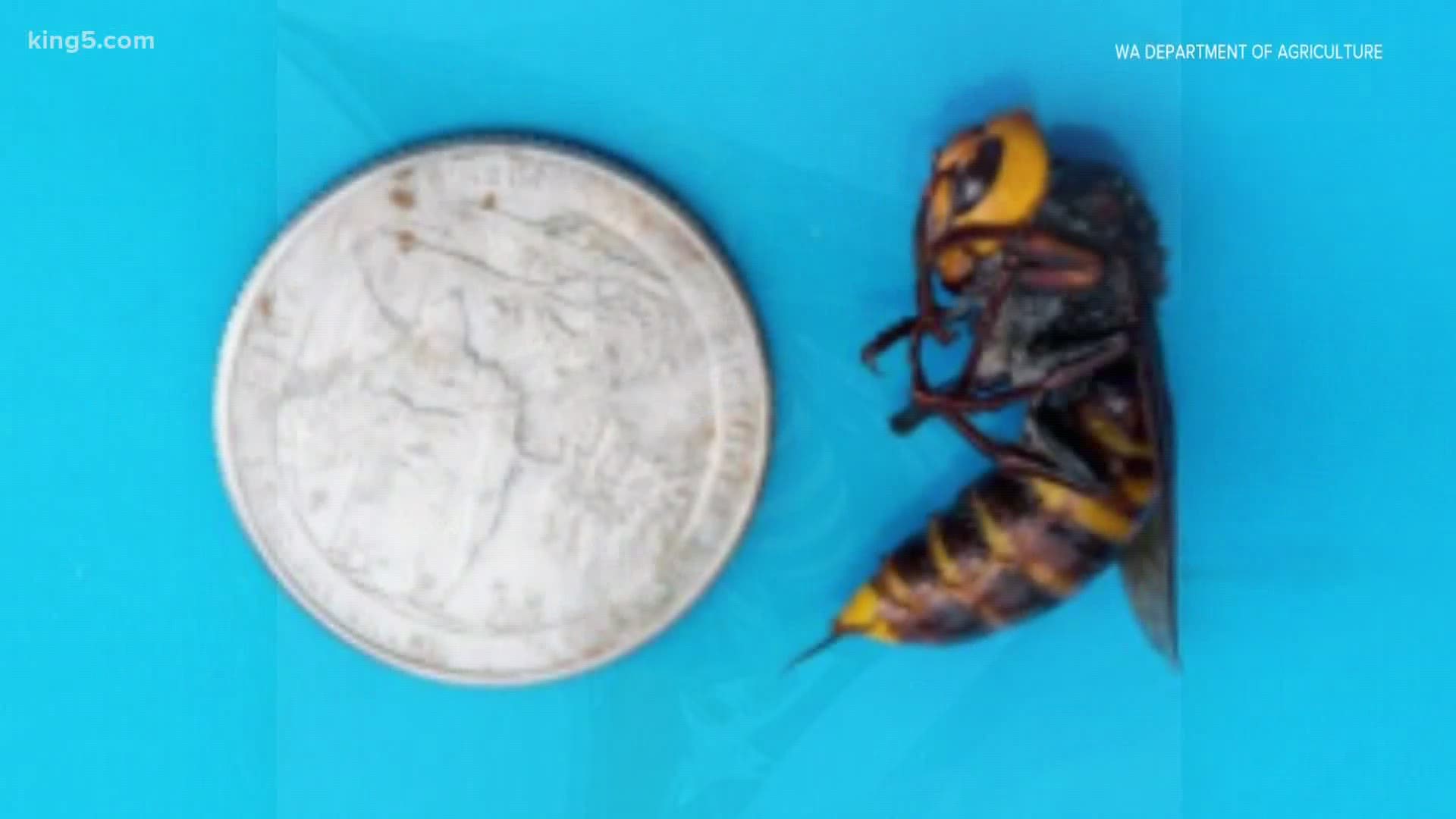PULLMAN, Wash. — Editor's note: The above video aired at an earlier date.
Researchers at Washington State University have predicted how and where the Asian giant hornet could spread and find ideal habitat, both in the United States and globally.
The Asian giant hornets are invasive to the Pacific Northwest and they have been dubbed "murder hornets" for their impact on bee populations.
Sharing their discoveries in a newly published article in the Proceedings of the National Academy of Sciences, the team found that if the world’s largest hornet gains a foothold in Washington state, it could spread down much of the west coast of the United States.
Using data from a similar species, WSU scientists predicted that without containment, Asian giant hornets could spread into southern Washington and Oregon, and north through British Columbia.
Calculating that hornets could fly up to 68 miles per year, their worst-case scenario found that the insects could disperse throughout the western regions of Washington and Oregon in 20 years or less.
Scientists warned that these predictions are just an educated guess based on the information they have available.
“These predictions are scientific sleuthing,” said WSU entomologist Javier Illan. “We’re making an educated guess on how fast and far these insects can move, their rate of success in establishing a nest, and offering different scenarios, from least bad to worst. No one has done this before for this species."
Nature alone cannot predict where the hornet may end up. Human activity plays a role in transporting invasive species around the globe, researchers said.
“Preventing the establishment and spread of Asian giant hornet in western North America is critical for protecting bees and beekeepers,” said WSU entomologist David Crowder said. “Our study can inform strategies to monitor and eradicate these invaders before they become established.”

